Filter by

A Grammar of the High Dialect of the Tamil Language, Termed Shen-Tamil
Published in 1822, but completed in manuscript form almost 100 years earlier, this work was designed to accompany Beschi's earlier Grammar of Common Tamil. While the latter enabled the student to speak the language, this reissue offers a way into reading Tamil's classical literature with its complexity of thought and technique. One of the earliest and most distinguished pioneers in the field of…
- Edition
- -
- ISBN/ISSN
- 9781139505918
- Collation
- -
- Series Title
- Cambridge Library Collection - Perspectives from the Royal Asiatic Society
- Call Number
- -
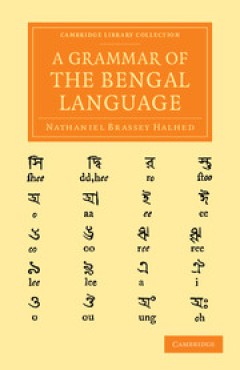
A Grammar of the Bengal Language
The language of Bangladesh, West Bengal and parts of Tripura and Assam, Bengali is an Indo-Aryan language originating from Sanskrit. With over 230 million speakers, it is the sixth most spoken language in the world today. Published in 1778, this was one of the first grammars of Bengali ever compiled. The English orientalist Nathaniel Brassey Halhed (1751–1830) prepared the work during his emp…
- Edition
- -
- ISBN/ISSN
- 9781139519878
- Collation
- -
- Series Title
- Cambridge Library Collection - Perspectives from the Royal Asiatic Society
- Call Number
- -
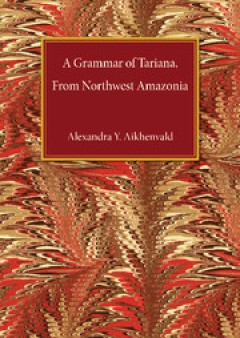
A Grammar of Tariana, from Northwest Amazonia
This is a comprehensive reference grammar of Tariana, an endangered Arawak language from a remote region in the northwest Amazonian jungle. Its speakers traditionally marry someone speaking a different language, and as a result most people are fluent in five or six languages. Because of this rampant multilingualism, Tariana combines a number of features inherited from the protolanguage with pro…
- Edition
- -
- ISBN/ISSN
- 9781107050952
- Collation
- -
- Series Title
- -
- Call Number
- -

A Government Out of Sight The Mystery of National Authority in Nineteenth-Ce…
While it is obvious that America's state and local governments were consistently active during the nineteenth century, a period dominated by laissez-faire, political historians of twentieth-century America have assumed that the national government did very little during this period. A Government Out of Sight challenges this premise, chronicling the ways in which the national government interven…
- Edition
- -
- ISBN/ISSN
- 9780511576324
- Collation
- -
- Series Title
- -
- Call Number
- -
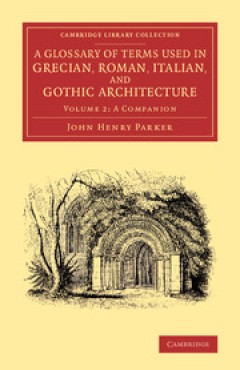
A Glossary of Terms Used in Grecian, Roman, Italian, and Gothic Architecture
The Oxford bookseller and publisher John Henry Parker (1806–84), a supporter of the Tractarian movement and a friend of Cardinal Newman, was also a historian of architecture, and first published this glossary in 1836. Reissued here is the enlarged third edition of 1840. The work is ordered alphabetically, and illustrated with 700 woodcuts by various artists. As stated in the first edition's p…
- Edition
- -
- ISBN/ISSN
- 9781107446144
- Collation
- -
- Series Title
- Cambridge Library Collection - Art and Architecture
- Call Number
- -
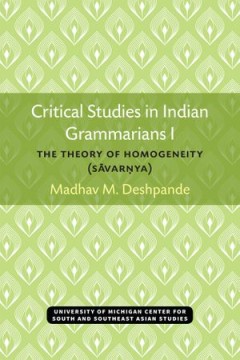
Critical Studies in Indian Grammarians I : The Theory of Homogeneity (Savar?ya)
In the historical study of the Indian grammarian tradition, a line of demarcation can often be drawn between the conformity of a system with the well-known grammar of Pa?ini and the explanatory effectiveness of that system. One element of Pa?ini’s grammar that scholars have sometimes struggled to bring across this line of demarcation is the theory of homogeneity, or sāvarṇya, which concern…
- Edition
- -
- ISBN/ISSN
- 9780472901708
- Collation
- 236 halaman
- Series Title
- -
- Call Number
- 305 DES c
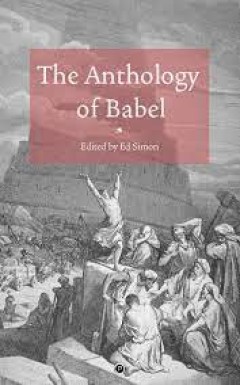
The Anthology of Babel
Why should there only be literary scholarship about authors who actually lived, and texts which exist? Where are the articles on Enoch Campion, Linus Withold, Redondo Panza, Darshan Singh, or Heidi B. Morton? That none of these are real authors should be no impediment to interpreting their invented writings. In the first collection of its kind, The Anthology of Babel publishes academic articles…
- Edition
- -
- ISBN/ISSN
- 9781950192472
- Collation
- -
- Series Title
- -
- Call Number
- -
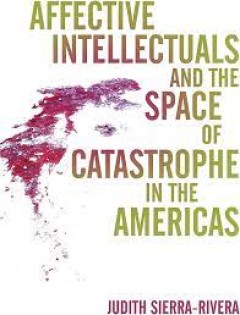
Affective Intellectuals and the Space of Catastrophe in the Americas
Most importantly, the book shows how literature constitutes an alternative public sphere for Black people. In a society largely controlled by white supremacist actors and institutions, Black authors have conjured fiction into a space where hard questions can be asked and answered and where the work of combatting collective, racist suppression can occur without replicating oppressive hierarchies…
- Edition
- -
- ISBN/ISSN
- 9780814254950
- Collation
- -
- Series Title
- -
- Call Number
- -
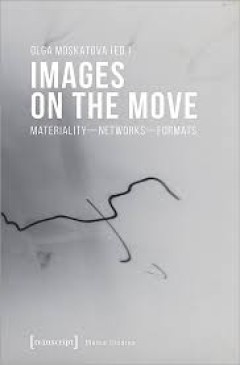
Images on the Move Materiality - Networks - Formats
In contemporary society, digital images have become increasingly mobile. They are networked, shared on social media, and circulated across small and portable screens. Accordingly, the discourses of spreadability and circulation have come to supersede the focus on production, indexicality, and manipulability, which had dominated early conceptions of digital photography and film. However, the mob…
- Edition
- -
- ISBN/ISSN
- 9783839452462
- Collation
- -
- Series Title
- -
- Call Number
- -
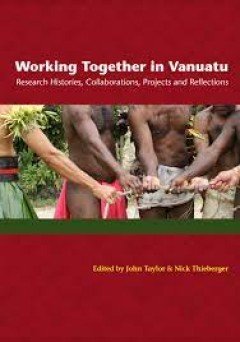
Working Together in Vanuatu Research Histories, Collaborations, Projects and…
This collection is derived from a conference held at the Vanuatu National Museum and Cultural Centre (VCC) that brought together a large gathering of foreign and indigenous researchers to discuss diverse perspectives relating to the unique program of social, political and historical research and management that has been fostered in that island nation. While not diminishing the importance of ind…
- Edition
- -
- ISBN/ISSN
- -
- Collation
- -
- Series Title
- -
- Call Number
- -
 Computer Science, Information & General Works
Computer Science, Information & General Works  Philosophy & Psychology
Philosophy & Psychology  Religion
Religion  Social Sciences
Social Sciences  Language
Language  Pure Science
Pure Science  Applied Sciences
Applied Sciences  Art & Recreation
Art & Recreation  Literature
Literature  History & Geography
History & Geography